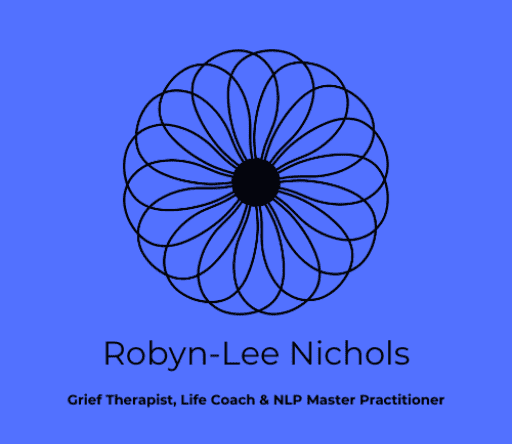Grief’s Dangerous Deceptions: Your breakthrough Path to Genuine Healing and Healthy Habits
Grief is like an unexpected storm that sweeps through our lives, leaving us disoriented and struggling to find our way.
While it’s a deeply personal journey, many people unknowingly develop unhealthy habits that can further complicate their healing process.
Understanding these patterns is the first step toward genuine recovery, emotional wellness and healthy habits.
The Dark Side of Grief: Destructive Habits We Often Develop
Grief doesn’t just affect our emotions—it can completely transform our behaviour and daily routines and steer us away from our healthy habits.
Many individuals find themselves falling into harmful patterns that seem like temporary comfort but can actually prolong their pain and hinder healing.
If you are noticing destructive habits that have replaced your healthy habits, have a look at the tools I have created at the link below:
Emotional Eating and Neglecting Nutrition
When grief hits, many people turn to food as a source of comfort. Any trauma has a abit of doing this!
Suddenly, late-night ice cream binges, excessive takeout, and mindless snacking become the norm. Where your healthy habits of eating stucture where once firmly entrenched in your being, these now disappear as the trauma of grief takes hold.
These habits aren’t just about momentary pleasure—they’re a way of numbing emotional pain. Unfortunately, poor nutrition can further drain our energy, create additional health issues, and make it even harder to process our emotions effectively.
Social Isolation and Withdrawal
Grief can make the world feel overwhelming. Even more overwhelming if you might have an introverted personality type, as I do.
As a result, many people retreat into themselves, cutting off connections with friends, family, and support systems. Our once healthy habits, of engaging in our passions and pursuits take the back seat, or are chucked out the car all together.
What might start as a need for space can quickly become a destructive pattern of complete isolation. This withdrawal prevents us from receiving the emotional support and human connection crucial for healing.
Even for us introverts, who need some time in peace and quiet and on our own, know well that connection and support is critical for our overall wellbeing.
Disrupted Sleep Patterns
Sleep becomes a battleground during grief. If you have lost a loved-one who provided comfort and intimacy for you, and that is now lost exacerbates the overwhelming vacuum that is created. Our once healthy habits of a structured bedtime, for example are extremely difficult to maintain, and even to think of.
Some people experience insomnia, lying awake for hours consumed by memories and pain. Others might use sleep as an escape, spending excessive hours in bed to avoid facing reality. Perhaps that innocent use of sleeping tablets now is a habit for you to just get to sleept.
Both extremes are unhealthy and can significantly impact mental and physical well-being.
Substance Misuse as a Coping Mechanism
The temptation to numb emotional pain through alcohol, drugs, or other substances can be incredibly strong during grief.
If you take supplements to support your healthy habits of exercise might be replaced by feeling the need to numb the emotions you are experiencing.
What might begin as an occasional drink to “take the edge off” can rapidly develop into a dangerous dependency that masks—rather than heals—emotional wounds.
Neglecting Personal Care and Responsibilities
When grief feels overwhelming, basic self-care can seem impossible. Getting up in the morning and showering can be so overwhelming that this healthy habit and structure is easily discarded in place of apathy and lack of self-care.
Personal hygiene, household chores, work responsibilities, and personal grooming might fall by the wayside. This neglect creates a cycle of low self-esteem and increased emotional distress.
The lack of structure in all of these areas, then becomes our way of dealing with our day, and everyday our healthy habits are left behind, makes it harder to really start to heal, and to find our back to ourselves, our purpose and meaning in life.
In a previous blog, I discussed some aspects of functional freeze, read it here:
The Critical Step: Embracing Intentional Vulnerability
If there’s one transformative step in overcoming these unhealthy grief habits and rekindling our healthy habits, it’s embracing reaching out to be intentionally vulnerable.
This means creating safe spaces—with trusted friends, family, or professional therapists where you can authentically express your emotions without fear of judgment.
Vulnerability and asking for help, even if you don’t think you know how to help yourself, is the bravest and most productive step forward in your grief recovery journey.
Vulnerability isn’t weakness; it’s actually incredible strength. By allowing yourself to truly feel and process your grief, rather than constantly trying to escape or numb it, you begin genuine healing.
This might look like:
- Scheduling regular therapy sessions
- Joining a grief support group
- Having honest conversations with loved ones
- Practicing mindfulness and emotional acknowledgment
- Giving yourself permission to feel without shame or restriction
If you want a no-obligation check-in, click below:
Intentional vulnerability helps break the cycle of destructive habits by providing healthy emotional outlets. In this way it becomes easier to navigate back to our healthy habits, and also in the process create wonderful habits for a rejuvenated future.
It transforms grief from something that controls you into an experience you can navigate with self-compassion and resilience. It will start to change your mind about the experience of the grief journey to finding your incredible inner strength that we all have.
Remember, healing isn’t linear. It is also a deeply personal and intimate journey into yourself.
Some days will be harder than others, and that’s perfectly okay. Be patient with yourself, seek support, and trust that by facing your grief authentically, you’re taking powerful steps toward renewal and hope.
If coaching and therapy is something on your mind, I have shared my framework of tools, which might answer some questions. However, I do love to tailor a specific programme for us to follow, so please don’t hesitate to reach out for a no-obligation friendly chat.







